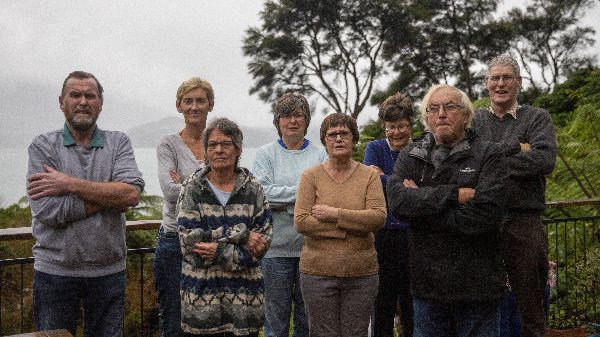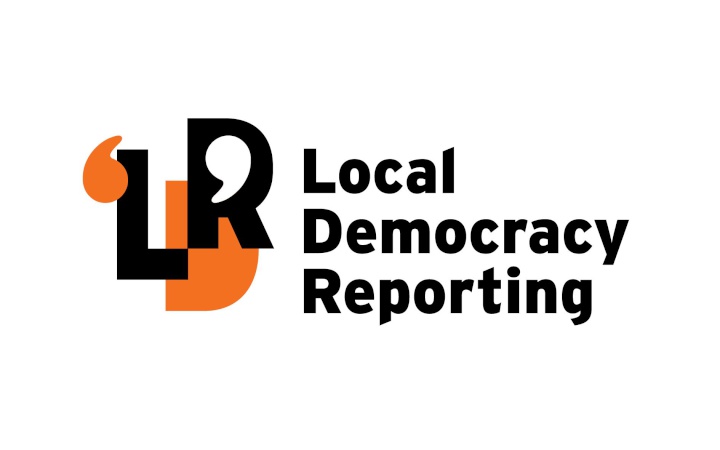Freedom campers have left residents in a Marlborough Sounds bay feeling "vulnerable" after years of defecating in their gardens, pinching their water and internet, and demanding to shower.

Double Bay residents asked the Marlborough District Council on Wednesday during annual plan hearings to close the freedom camping site just 50 metres from their homes, or move it.
Kathryn Omond, who represented nine Double Bay households, said few other Marlburians faced the issues and intrusion that they did.
"One campervan got stuck driving up a driveway and then went wandering until they found an open garage and, thinking it was a 'council workshop', they helped themselves to the tools," she said.
The tourist was stopped by a neighbour, but the garage owners had to install security cameras after the incident "at a significant cost".
Another camper drove up a private driveway to join a resident's wi-fi, and started "screaming" after being told it wasn't available.
One resident removed their outdoor tap to prevent water theft.
Margaret Curteis said campers often knocked on her door asking for a shower, to do laundry, to use her wi-fi, or to park on her lawn.
"If you refuse, they get aggressive and very rude with you as, 'You've got a big lawn here, why can't I park on it?'" she told councillors.
"They don't think they're doing anything wrong."
Her neighbours had found beer bottles and takeaway food on their deck.
"[Freedom campers] had been up onto their deck, had their dinner, had their coffee, looked at the view and left their rubbish," she said.
Curteis said her four-year-old granddaughter had spotted human waste covered in toilet paper in her garden about five months ago.
"What's really scary is about 20 minutes before that, both my granddaughters were running around in the garden," she said.
"They should be safe to do that ... This is not a rare occurrence.
"We feel vulnerable. How long is it until they break into our homes?"
Tourists also lit campfires during fire bans, left behind full bags of rubbish, and emptied their urine pots, once "over the picnic table".
Most of the campers were international visitors, Curteis said.
Omond said tourists often parked in the bay's grass helipad, used six times in the last year, putting campers and passengers at risk.
"My husband was airlifted twice by a helicopter due to heart issues. On both occasions, had the helicopter not been able to land [due to freedom campers], it would have resulted in [him] not surviving."
She said closing the site would cost the council nothing.
But Marlborough Mayor John Leggett said at the hearings while their case was "very compelling", freedom camping was legal in New Zealand under the Government's Freedom Camping Act.
"Local [council] authorities have to find a way to accommodate freedom campers. That's the dilemma for us," Leggett said.
He suggested the residents re-hash their submissions during next month's review of Marlborough's freedom camping bylaw, which kicked off following a landslide of concerns during last year's plan.
The current bylaw prohibited self-contained freedom camping in all but designated sites in the region, like at Double Bay's reserve.
Councillors would consider annual plan submissions on June 8.



 Eugene Doyle: Has WWIII Started?
Eugene Doyle: Has WWIII Started? Binoy Kampmark: Fencing The Ocean - Australia’s Social Media Safety Bill
Binoy Kampmark: Fencing The Ocean - Australia’s Social Media Safety Bill Binoy Kampmark: Trump, AUKUS And Australia’s Dim Servitors
Binoy Kampmark: Trump, AUKUS And Australia’s Dim Servitors Peter Dunne: Dunne's Weekly - The Wrong Answer To A Question That Does Not Exist
Peter Dunne: Dunne's Weekly - The Wrong Answer To A Question That Does Not Exist Martin LeFevre - Meditations: Perception, Conception And Beauty
Martin LeFevre - Meditations: Perception, Conception And Beauty Alastair Thompson: On The Publication Of The First NCQG Text 'New Collective Quantified Goal On Climate Finance'
Alastair Thompson: On The Publication Of The First NCQG Text 'New Collective Quantified Goal On Climate Finance'